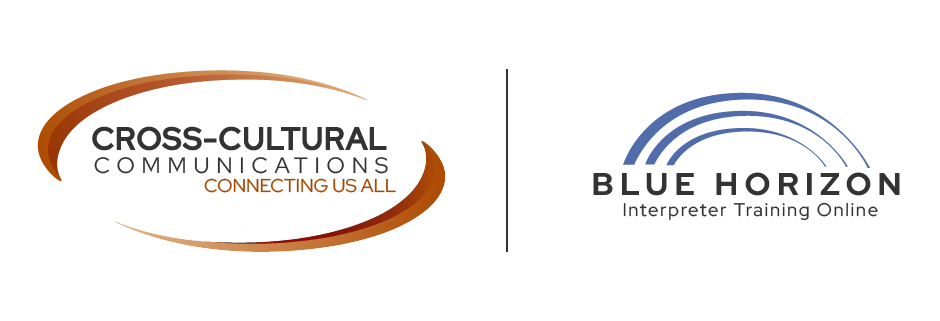Introduction to Community Interpreting
Introductory training program for bilingual employees who perform interpretation as part of their work.

Course description: A thorough introduction to the profession of community interpreting (including healthcare, social services and educational interpreting) for bilingual staff and freelance interpreters. Learn the basic ethics, standards and protocols.
After completing this course, you will be able to:
- Define, compare and contrast community and medical interpreting.
- Discuss the history of community and medical interpreting.
- Determine which interpreting specializations are part of community interpreting.
- Define and discuss ethical codes of conduct.
- List and analyze nine ethical principles for medical and community interpreters.
- Describe the three stages and seven steps of a typical interpreted encounter in healthcare and community settings.
- Analyze professional and unprofessional conduct in each of the seven steps of the interpreted encounter.
- Discuss and practice four protocols for medical and community interpreting: positioning, introductions, direct speech and turn-taking.
- Make decisions about when and how to perform these four protocols during interpreting assignments.
- Compare and contrast codes of ethics and standards of practice for interpreters.
- Identify general best practices that support standards for community interpreters.
Course length: 8 hours
Course access period: 60 days from purchase date
Once purchased, course access cannot be paused. See our FAQ for information on purchasing course access extensions or purchase your course extension here.
Course completion requirements: Pass five exit tests (score of 70% or above).
Certificate: Downloadable certificates available immediately upon passing each lesson exit test.
CEUs:
- Certification Commission for Healthcare Interpreters (CCHI): 2 CCHI CE hours
- Washington State Department of Social Health Services: 1.5 DSHS CECs
- The Registry of Interpreters for the Deaf: 0.15 RID CEUs*
- Maryland Court Interpreter Program: 8 CE credits
- Ontario Council on Community Interpreting: 8 OCCI PDUs
What you will get:
- 4 video instructors: Marjory A. Bancroft, MA, Omari Jeremiah, MA, Rita Monroy, MA and Lorelly Solano, PhD
- 43 interactive exercises, including three quizzes
- 6 videos of interpreters facing ethical dilemmas and other difficulties during assignments
- 6 audio sample interpreter introductions to assess
- 5 audio recordings of indirect speech to be converted to direct speech
- An introduction to communicative autonomy
- An analysis of interpreting specializations
- Handout: NCIHC National Code of Ethics for Interpreters in Health Care
- An overview of codes of ethics for interpreters, both international and U.S.
- 1 role play exercise (English only: briefing practice)
- A step-by-step analysis of the interpreted encounter
- Clear guidance and examples on briefings, introductions and debriefing
- Post-encounter analysis guidelines
- 13 best practices on applying standards in the field
- A free publication (environmental scan) about interpreting standards of practice
- Valuable tips from the field
- Sections from The Community Interpreter®: An International Textbook and The Medical Interpreter: A Foundation Textbook for Medical Interpreting
- 5 lesson completion certificates plus an overall course completion certificate
Introduction to Community Interpreting Course Content (Estimated time for completion: 8 hours)
- An Overview of Community and Medical Interpreting (1.5 hours)
- Ethics in Action 1: Codes of Ethics for Community and Medical Interpreters (1.5 hours)
- How to Conduct an Interpreted Encounter (1.5 hours)
- How to Perform Standard Interpreting Protocols (1.5 hours)
- How to Follow Interpreting Standards of Practice (2 hours)
*Please note that there is an additional $20 processing fee, per program, for RID CEUs.



